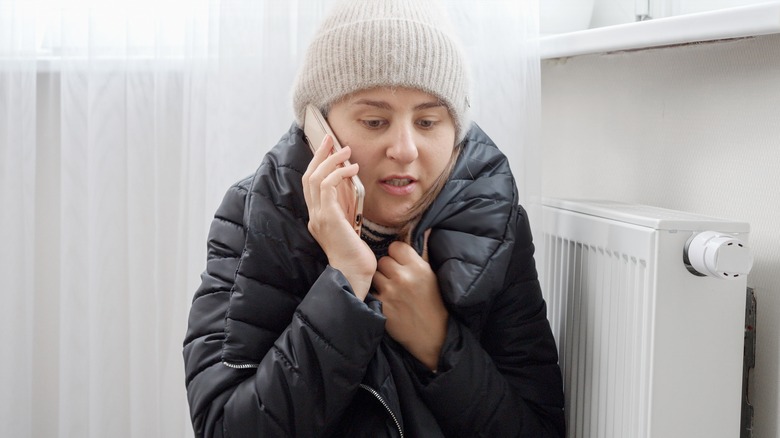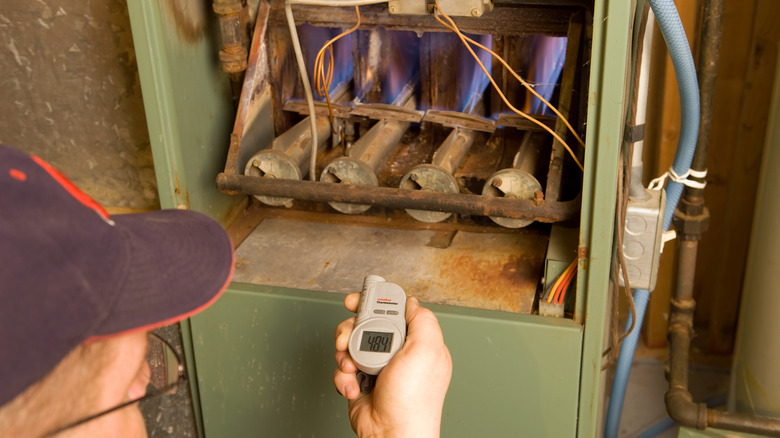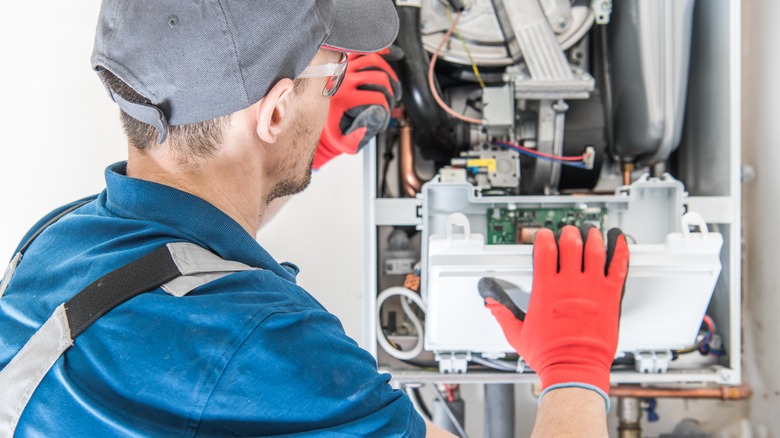Why Your Furnace Keeps Turning Off And What You Can Do About It
Once the weather starts to dip, you count on your furnace to keep your family warm. A pleasant sense of happiness often follows that first roar of it kicking on for the season. If that doesn't happen, or you hear the furnace turn off long before you're feeling toasty warm, there are several potential reasons. One sometimes overlooked cause is rust. In areas of high humidity or areas of water damage, rust can form in the flue lines. It may also be due to corrosion building up within the flame sensor.
Though not as common as problems with your heating system's thermostat or a defective draft inducer motor, rust can be a big problem in many homes, especially in older houses or areas where humidity tends to be high throughout the year. If you've already looked for other concerns, such as a tripped breaker, exhaust malfunctions, or a malfunctioning thermostat, take a closer look at the core components of the furnace itself, especially the heat exchanger on a gas furnace, which is located near the combustion chamber. If it looks corroded or has a significant brown coloring to it, rust could be the reason why your furnace continues to turn off, and it may be time to get your gas furnace inspected.
Why rust forms on your furnace
Rust can form in many areas of the furnace, often the result of moisture seeping into the area through cracks in the pipes. Humidity can also cause the surface of the furnace to corrode over time. It may not seem wet, but the moisture in the air could be enough to allow for this to build up. If you notice condensation on the pipes or the furnace itself, that's a clear indication of high humidity.
If you notice rust on the interior surfaces, it's likely because of a lack of proper ventilation, while rust on the exterior of the units is probably due to a leak at some point. Any of the metal surfaces present can suffer from corrosion — the reaction that occurs when moisture sits on the surface of metal for too long. When this corrosion begins, it can lead to rust.
As for leaks, they can occur throughout the system but may also be due to the air conditioner. Many homes have a combined system where both the furnace and the air conditioner are next to each other. The AC system naturally creates a significant amount of condensation as it pulls moisture out of the air. If that drips onto the furnace, it could cause rust to form.
What to do about rust causing your furnace to shut off?
When rust forms on the exterior or interior of a furnace, the system cannot operate properly, leading to a low energy output from the system. When the furnace shuts off, that often indicates the sensors are catching the high level of carbon monoxide build-up that's occurring, especially if there's rust on the heat exchanger. Carbon monoxide is a highly dangerous, odorless gas that can cause fatalities in your home.
Don't try to keep turning the system on. Also, don't ignore the problem if it happens just a few times, as the rust will spread over time. Your best bet in these situations is to call a licensed HVAC repair technician to determine what is happening and how significant the problem is. The repair technician may be able to spot clogged drain lines or other leak causes and fix those. If there's a lot of rust inside the furnace, the metal could be so broken down and damaged that replacing the furnace is the best (and sometimes only) option. To prevent further damage, waterproofing and humidity control measures may also be necessary.


